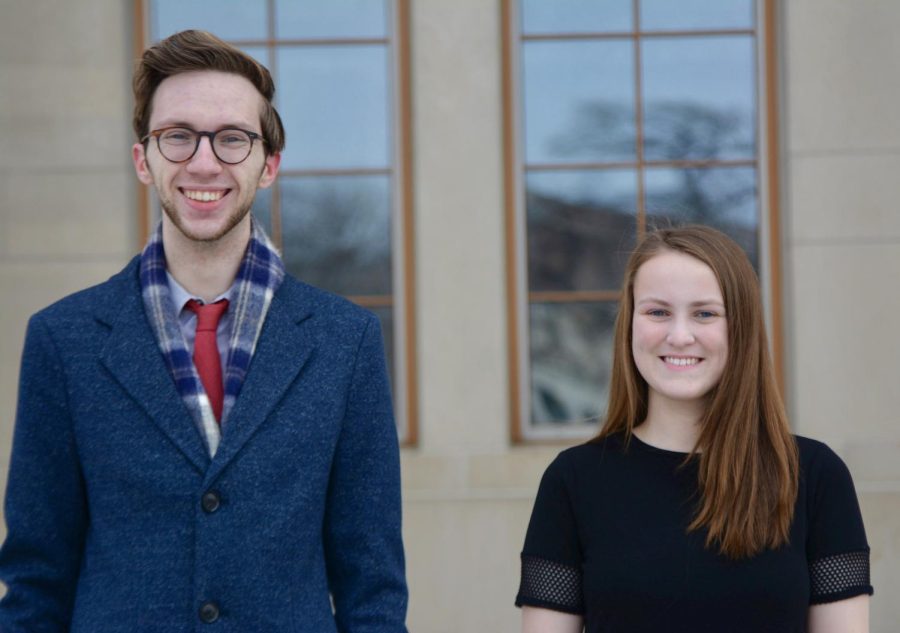The Minnesota House Higher Education Committee convened five student groups from across the state, including the Minnesota Student Association (MSA), to talk about the upcoming session and what students want to see from legislators.
MSA Director of Government and Legislative Affairs Grace Johnson and Ranking Voting Member Carter Yost spoke on behalf of the group at the Feb. 2 meeting. Johnson and Yost highlighted increasing student minimum wage and public safety while also bringing up housing reform, expansion of telehealth services and amending the Board of Regents selection process.
The live reaction from legislators was relatively silent, with one of the 19 committee members asking Johnson and Yost questions after their testimony. Afterward, Yost said he heard from lawmakers.
“I received a few folks sending messages thanking me for being there and congratulating us on the advocacy,” Yost said. “It seems to me that there’s a general sense of elected officials really wanting to find that student input.”
MSA shares their goals
One issue the student group brought up was the legally complicated topic of raising the student minimum wage. The University’s student minimum wage is $10.33 an hour compared to Minneapolis’ $14.25 per hour wage for large employers.
The University is a land-grant institution and predates the state of Minnesota, meaning the legislature is limited on how it can tell the University system to spend its funds. The University has constitutional autonomy as a separate legal entity, exempting it from Minneapolis’ minimum wage laws and allowing the University to set its own wage for workers.
Johnson and her team say they are aware of the challenges but are still determined to attempt to make a change.
“We know the University had the money to give [President] Joan Gabel a pay raise and we know the state has this money here,” Johnson said.
“Let’s have a negotiation. This is a new kind of perfect storm of circumstances that might make this something possible to accomplish by the end of the year,” she said, referring to the $7.7 billion state surplus.
Yost spent most of his time at the hearing talking about the need for better public safety initiatives on campus, particularly in the off-campus neighborhoods like Dinkytown and Marcy Holmes. He said later in an interview that off-campus lighting, upgrading to adequate surveillance cameras and achieving the “feeling of safety” are going to be big focuses between MSA and the legislature.
MSA’s fall survey found 2,243 participants favored expanded campus lighting and 1,759 favored installing more security towers.
According to Johnson, moving forward with the legislature will require one-on-one meetings with legislators as well as continually making more connections with other organizations.
“Hopefully there are some eager beavers up there that do want to testify,” said Rep. Shelly Christensen, vice chair of the committee, of getting student voices involved. “[Testimony] reaches so many more people in that way. That’s important to me as a legislator.”
Johnson said MSA will be watching for any new issues that pop up during the semester. The issues they testified on are not limiting them in issues that come up during the session.
“It’s smart to choose three or four main areas you want to work on so that it’s not too expansive or too time-consuming at the beginning,” Johnson said. “There will inevitably be something that pops up mid-year.”














